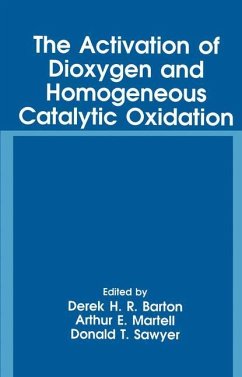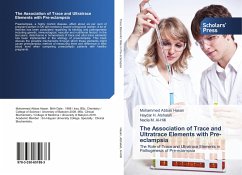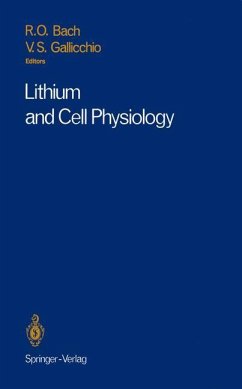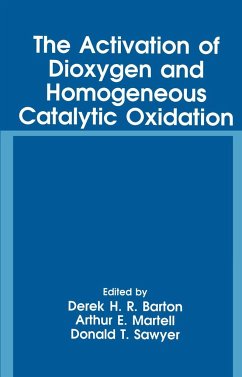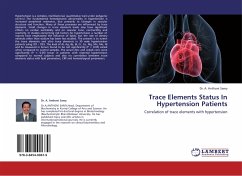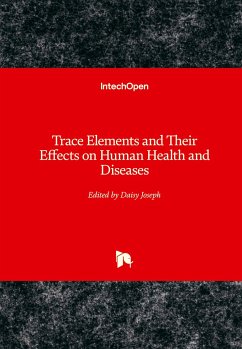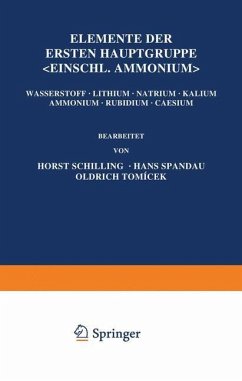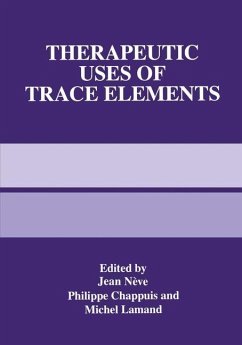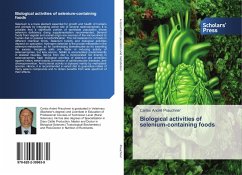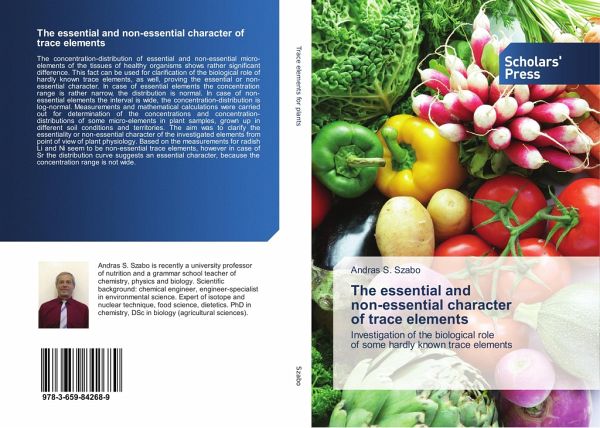
The essential and non-essential character of trace elements
Investigation of the biological role of some hardly known trace elements
Versandkostenfrei!
Versandfertig in 6-10 Tagen
42,99 €
inkl. MwSt.

PAYBACK Punkte
21 °P sammeln!
The concentration-distribution of essential and non-essential micro-elements of the tissues of healthy organisms shows rather significant difference. This fact can be used for clarification of the biological role of hardly known trace elements, as well, proving the essential or non-essential character. In case of essential elements the concentration range is rather narrow, the distribution is normal. In case of non-essential elements the interval is wide, the concentration-distribution is log-normal. Measurements and mathematical calculations were carried out for determination of the concentra...
The concentration-distribution of essential and non-essential micro-elements of the tissues of healthy organisms shows rather significant difference. This fact can be used for clarification of the biological role of hardly known trace elements, as well, proving the essential or non-essential character. In case of essential elements the concentration range is rather narrow, the distribution is normal. In case of non-essential elements the interval is wide, the concentration-distribution is log-normal. Measurements and mathematical calculations were carried out for determination of the concentrations and concentration-distributions of some micro-elements in plant samples, grown up in different soil conditions and territories. The aim was to clarify the essentiality or non-essential character of the investigated elements from point of view of plant physiology. Based on the measurements for radish Li and Ni seem to be non-essential trace elements, however in case of Sr the distribution curve suggests an essential character, because the concentration range is not wide.



